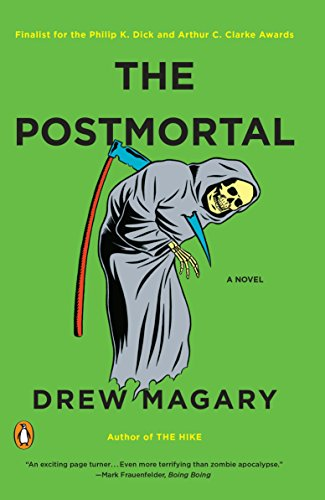The Postmortal, Elon Musk, AI, and Faith: A Lighthearted Exploration of Immortality's Pitfalls and Spiritual Impact
Welcome to a lighthearted, thought-provoking journey through the world of immortality, Artificial Intelligence (AI), the ever-inspiring Elon Musk, and the intersection of faith in a postmortal society. Let's dive into the captivating novel "Postmortal" by Drew Magary, discuss the implications of living forever, and consider how AI and faith might intertwine in this hypothetical world.
The Postmortal and the Immortal Dilemma
In the dystopian universe of "Postmortal," Drew Magary dares to ask the question we've all pondered: "What if we could live forever?" Magary tackles this profound question with a unique blend of wit and heart-wrenching drama. The novel follows John Farrell, an ordinary guy faced with the ultimate decision: to live forever or not. Through Magary's storytelling, we get to explore the unintended consequences of immortality and the chaos that ensues, all while contemplating the impact of such a discovery on our own lives.
The Pitfalls of Immortality and the Role of Faith
"Postmortal" highlights several problems that come with the ability to live forever. The novel delves into the complexities of marriage and family structures, the strain on resources, overpopulation, perpetual babies, ageless adolescents, radical groups that resort to violence, and even the psychological challenges of living forever, such as boredom and restlessness.
Amid these challenges, faith plays a significant role in the lives of those navigating a postmortal world. Traditional faiths like Christianity may find themselves grappling with the implications of immortality, as the concept of eternal life is often central to their beliefs. Additionally, a new faith emerges in the novel – the Church of Man – which worships humanity and its newfound ability to conquer death.
Enter Elon Musk
When you think of visionaries, Elon Musk is likely one of the first names that come to mind. From Tesla to SpaceX, the man is constantly pushing the boundaries of what's possible. However, despite his futuristic mindset, Musk is known for his reluctance to embrace the idea of immortality.
In an interview, Elon Musk was quoted as saying, "I think it's important to have an end so that we're forced to progress." In a world where people cling to the idea of living forever, it's refreshing to see someone with such influence challenge the status quo. With the numerous issues presented in "Postmortal," Musk's perspective emphasizes the importance of progress and the natural ebb and flow of life, which might resonate with those who hold strong spiritual beliefs.
AI Crashes the Party
As we imagine a future where immortality is possible, we must also consider the role AI will play. Artificial Intelligence is advancing at an astonishing rate, and its integration into our lives is becoming more prevalent. But how might AI factor into a world where people no longer age or die from natural causes, and how would it intersect with faith?
From Elon Musk's perspective, AI could have the potential to alleviate some of the challenges that come with immortality. Managing overpopulation, handling the inevitable strain on resources, addressing the ethical dilemmas of perpetual babies and ageless adolescents, and even providing new forms of therapy and mental health support could all fall within the realm of AI's capabilities.
However, AI's increasing presence in our lives could also raise questions about the role of faith in a world where technology is so intertwined with our existence. As AI continues to progress, it's essential to weigh the potential benefits against the risks and consider the spiritual implications of an ever-evolving technological landscape.
Conclusion
Exploring the captivating universe of "Postmortal," the wisdom of Elon Musk, the potential role AI could play in our future, and the impact on faith reveals that the conversation around immortality is both complex and thought-provoking. While the idea of living forever might seem enticing, it's important to consider the potential consequences and the role technology and faith will play in shaping our future.
In the end, it's all about striking a balance and ensuring that progress continues, even as we ponder the possibilities of immortality and navigate the pitfalls presented in Magary's compelling novel. As we explore the intersection of faith, AI, and immortality, we must remain open to dialogue and embrace the diverse perspectives that arise from these thought-provoking concepts.





Comments
Post a Comment